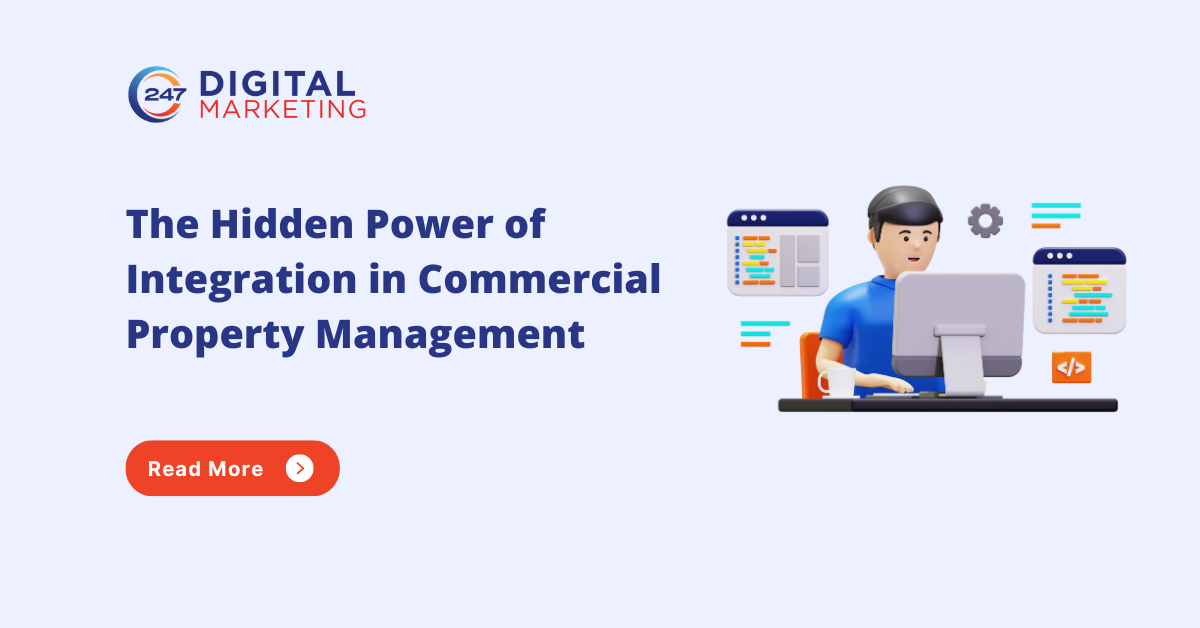
Late on a Friday afternoon, a property manager flips through a stack of reports. Maintenance logs are buried in emails, rent collection data lives in a separate accounting system, and tenant communications are scattered across multiple platforms. The numbers do not line up, the reports are outdated, and decisions have to be made with incomplete information.
This is the daily reality for many mid-sized commercial real estate firms, a constant juggling act between disconnected tools and time-consuming manual processes. While it might keep the business afloat in the short term, over time it limits growth, slows decision-making, and erodes tenant satisfaction.
Why Disconnected Systems Hold Firms Back
A fragmented tech stack does more than waste time. It creates blind spots. Without centralized data, property managers struggle to:
- Generate accurate, timely financial reports
- Track maintenance requests and completion times
- Coordinate between leasing, accounting, and facilities teams
- Deliver consistent communication to tenants
Small inefficiencies add up, creating operational headaches and missed opportunities for improvement.
The Mid-Market Challenge
Mid-market commercial property firms face a unique dilemma. Entry-level tools lack the sophistication to manage multiple properties or complex lease structures. On the other hand, enterprise solutions can be overly complex, expensive, and slow to implement.
What these firms need is a platform that strikes the right balance, robust, enterprise-level capabilities without a steep learning curve or unnecessary overhead.
Technology for the Entire Property Lifecycle
The right software should not only streamline day-to-day property operations but also support planning, development, and construction phases. Forward-thinking firms are turning to solutions like Real Estate Property Management Software to ensure every stage, from feasibility studies to post-completion management, is handled within one connected system.
By using technology that spans the full lifecycle, teams can:
- Avoid costly handover errors between departments
- Track budgets and timelines in real time
- Align development goals with long-term management strategies
This lifecycle approach creates a smoother transition from project development to ongoing property management, ensuring the initial investment pays off for years to come.
Elevate Real Estate Solutions: Built for Mid-Market Efficiency
Mid-market real estate firms often sit in a difficult position. They face the same complex needs as large enterprises but without the same resources to throw at the problem. Entry-level property management tools are too limited, and enterprise systems are too cumbersome or expensive.
Elevate Real Estate Solutions addresses this gap with a modern platform built on Acumatica Cloud ERP, enriched with nearly 40 years of commercial real estate expertise. The result is a system that balances robust functionality with ease of use.
Key advantages include:
- A single environment for lease administration, maintenance tracking, accounting, tenant communications, capital improvements, and more
- Built-in CAM recovery, flexible lease structuring, and advanced retail tracking for percentage rents
- Cloud-based access from anywhere, with mobile-friendly dashboards and reporting tools
- Industry-specific features tailored for office, retail, industrial, and mixed-use properties
By integrating these capabilities, property managers can work smarter, not harder.
How Integration Drives Long-Term Value
Bringing everything into one system creates more than just convenience, it drives measurable ROI:
Time Efficiency
Automating rent collection, maintenance tracking, and reporting saves hours each week.
Better Decision-Making
Real-time access to accurate data means leaders can respond to market changes quickly.
Tenant Satisfaction
Faster responses to service requests and transparent billing improve tenant relationships.
Scalability
A unified platform can grow with the portfolio, supporting more properties without adding administrative strain.
The Real Estate Technology Landscape is Changing
The commercial property industry is undergoing a quiet but significant shift toward cloud-based, integrated solutions. The benefits are no longer a nice-to-have. They are becoming the standard for competitive firms.
Key trends shaping the space include:
- Mobile-first access so managers can work from any location
- Automation of routine processes to free up strategic time
- Customizable reporting tools for both internal leadership and investor updates
- Enhanced security protocols to protect sensitive tenant and financial data
Firms that adopt these innovations early position themselves for stronger tenant retention and better market responsiveness.
Moving From Overwhelm to Control
Upgrading technology is not just about buying software. It is about redesigning workflows so that data flows seamlessly across teams. The payoff comes in the form of fewer mistakes, faster turnarounds, and a more proactive approach to asset management.
For firms that want to streamline operations without losing control, investing in Commercial Property Management Software can be the turning point. The right platform aligns teams, integrates core processes, and delivers the insights needed to stay competitive in today’s market.
The Future is Connected and the Time to Act is Now
The days of juggling spreadsheets, disconnected apps, and incomplete reports are ending. Mid-market property firms that invest in integrated, purpose-built technology are gaining faster insights, improving tenant relationships, and scaling their portfolios without unnecessary complexity.
If your current systems are slowing you down, the next move is clear. Streamline your operations, bring your data together, and give your team the tools they need to make better, faster decisions.
Your portfolio’s potential is not just about location and assets. It is about how efficiently you manage every aspect of your business. Firms that act now will lead the market tomorrow. The sooner you connect your processes, the sooner you can move from reactive management to strategic growth.
Mitesh Patel is the co-founder of 247 Digital Marketing, LawFirm Marketing and a columnist. He helps companies like Emerson and other top Fortune 500 compnies to grow their revenue.



